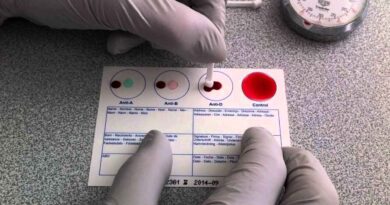How Many Calories Are in One Banana?
Eating healthy is good; being conscious about health is a positive activity. Today, people are heading towards junk food and with lots of weight gain issues. They have multiple diseases because of unclean foods. Kids and young girls could be better at a healthy diet. Especially in foreign areas, people need to cook meals in some places. So we are thinking about: How Many Calories Are in One Banana? In this article, we are going to discuss the One Banana. How many Carbs?
Bananas contain various essential nutrients and are incredibly healthy. More than 90 present of Banana contains many carbs, and a medium banana is composed of 105 calories. Most people like to eat bananas but are curious about their calories.
Different Sizes, Distinct Calories
Bananas have different sizes, and do these sizes have additional calories, or are they the same? Bananas can contain 100 calories, but it depends on their size, and how is that? Let me tell you
- Extra small Banana which is smaller than six inches or 18 gram must have 72 calories
- Small Banana, which is to some extent 6 to 7 inches, are round, about 101 gram, and have 90 calories
- Medium bananas like 7- 8 inches, which is 118 grams, have 105 calories
- Large Banana of eight to nine inches is 136 grams and contain 121 calories
- And extra large Banana, which varies from 9 and more than 9 inches, contain 152 calories.
- A sliced one-cup banana has 134 calories, and a mashed 1-cup banana contains 200 calories.
The essential calories of different bananas have different sizes and contain multiple calories and carbs. If anyone is unsure about the size of a banana, they can estimate that an average banana contains more than 100 calories. But do not worry about all these calories because bananas have 92 per cent of calories, 4 to 5 per cent of protein and 3 per cent of fats.
Green Banana Contain More Starch than the Ripen Banana
Carbs are the essential nutrients in bananas, and by adequately ripening, they have more calories and fewer carbs and nutrients. Carbs change insignificantly. A high sugar level in 1 banana makes the less resistant to starch. Yellow bananas do not have much starch as compared to green bananas. As a nutrient factor, people of Africa eat Bananas in their meals. They mash the Banana with sweet potato and make the dish “Fofo” because its starch makes it thick and levy, and they eat it with fish, some meat, etc.
This means that bananas have enough calories and nutrients that people can eat them in their meals and with different dishes. During the ripen process starch changes into sugar. Yellow bananas have less than 1 % resistance to Banana. Resistance starch is an insoluble form of glucose that the body cannot break down and mixes like fibre.
Many Other Nutrients Can Be Found In Banana
Banana contains different good nutrients and several amounts of vitamin, fibre, etc. How Many Calories Are In One Banana?
In 1 medium, bananas contain various vitamins and minerals.
- Fibre in one medium Banana is 3.1 gram
- 25 % of vitamin B6
- 11 % of vitamin C
- 12% of potassium
And many other edible factors with different percentages. Bananas are a tasty and healthy diet for the better snacks.
Bananas are one of the essential foods in the world. As I told you before, South Africans have famous food cooked by unripe bananas. Bananas come from a family of plants called Musa and are grown in native South Africa and many other warmer areas. They are healthy origins of fibre, vitamin B6, and potassium.
Carbs
Bananas are very rich in carbs. Unripe bananas have starch, and ripe bananas have more sugar. During the process of ripping Banana it contains 80 percent starch. It is the main factor of the Banana. The level of carbohydrates rapidly changes when bananas ripen. When the Banana is fully ripe, the starch changes in sugar and starch is left only 1 per cent. Fructose and glucose are the common types of ripened bananas. And the total per cent of sugar in fresh banana weight is 16 per cent. It has a relatively lower glycemic Index (GI) of 40-60 per cent depending on the ripening period. This shows how quickly carbs enter your body and increase your sugar level. Having higher resistance to carbs and fibre describes their low GI.
Minerals and Vitamin
Bananas are delicious in having minerals and vitamins. Bananas contain a lot of vitamin B6 and potassium, especially vitamin C1. Banana is one of the best foods for people who love to eat healthy because it has potassium which lowers blood pressure. Additionally, we know that bananas contain a lot of vitamin B6. One medium-sized Banana can give 33 per cent of vitamins.
People who take the Keto diet must use fruits with high fibre and proteins, and a Banana is one of them.
Benefits of Banana according to health care
We all know that heart attacks are common in premature death rates. Bananas contain potassium; one Banana can give you almost 0.4 grams of minerals. It keeps heart patients health and helps you reduce heart attacks. People with different diseases are very conscious about their health. They have to search everything like, how many calories are in one Banana? People also search for how much carbs Banana contains. Because this is the myth that is common in society, one Banana have many fats and doesn’t eat during their diet. This is a very wrong assumption about bananas. Additionally, Banana contains antioxidant flavonoids which decrease the rate of heart attacks.
Negative points of Banana

Unripe green bananas are a good Source of nutritional diets. Especially resistance of starch and pectin. Pectins and resistant starch function as prebiotic nutrients, promoting the development of healthy gut flora.
Beneficial bacteria in your stomach ferment these fibres to produce butyrate, a short-chain fatty acid that supports gut health.
Regarding the health of those patients who have diabetes must intake less Banana. Sugar levels are high in ripe bananas. If we see how many calories are in 1 banana? It is questionable that bananas are high in sugar and unsuitable for sugar patients because they have higher sugar levels.
However, consuming excessively well-ripened bananas is not recommended for those with diabetes. Following a large sugar or carbohydrate meal, closely monitoring blood sugar levels is usually advisable. Turning to other topics, research suggests that this fruit may put people at risk for constipation, while other studies indicate that bananas may have the opposite impact (14 Trusted Source, 15 Truthful Source). Bananas have no significant adverse effects when eaten in moderation.
Conclusion
This is very common that if someone is facing diabetes and wants to control their sugar level, they must avoid sugar and sugary items. But as we are talking about, how many calories are in one Banana? In this article, we tell our readers that bananas are a natural source of sugar, so do not worry much and take natural foods in your diet.




